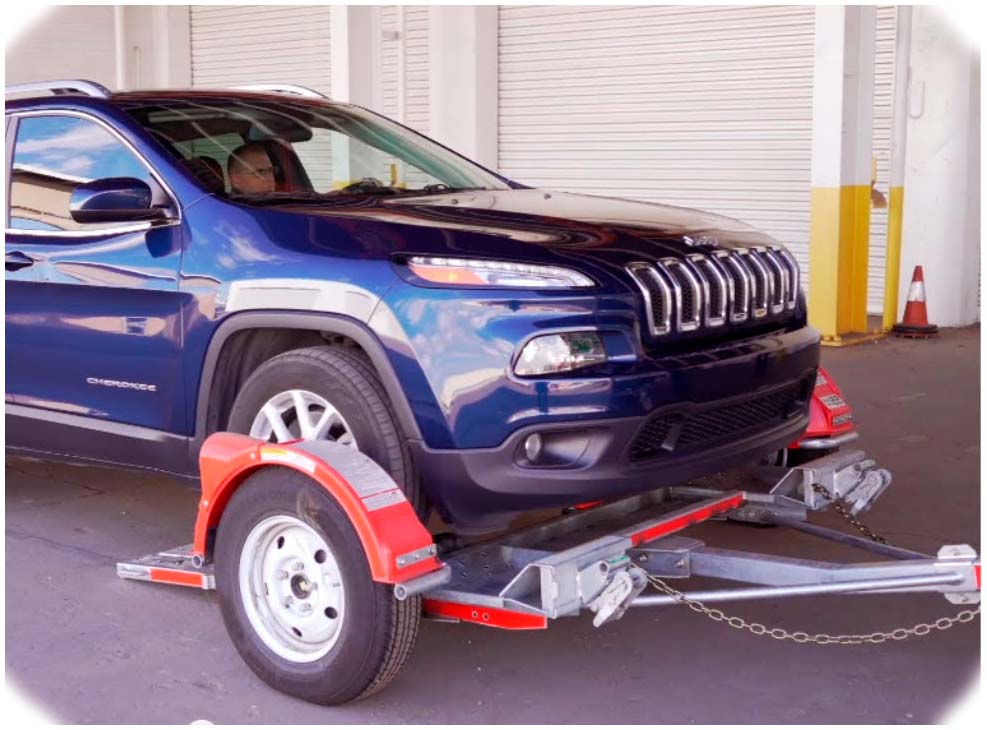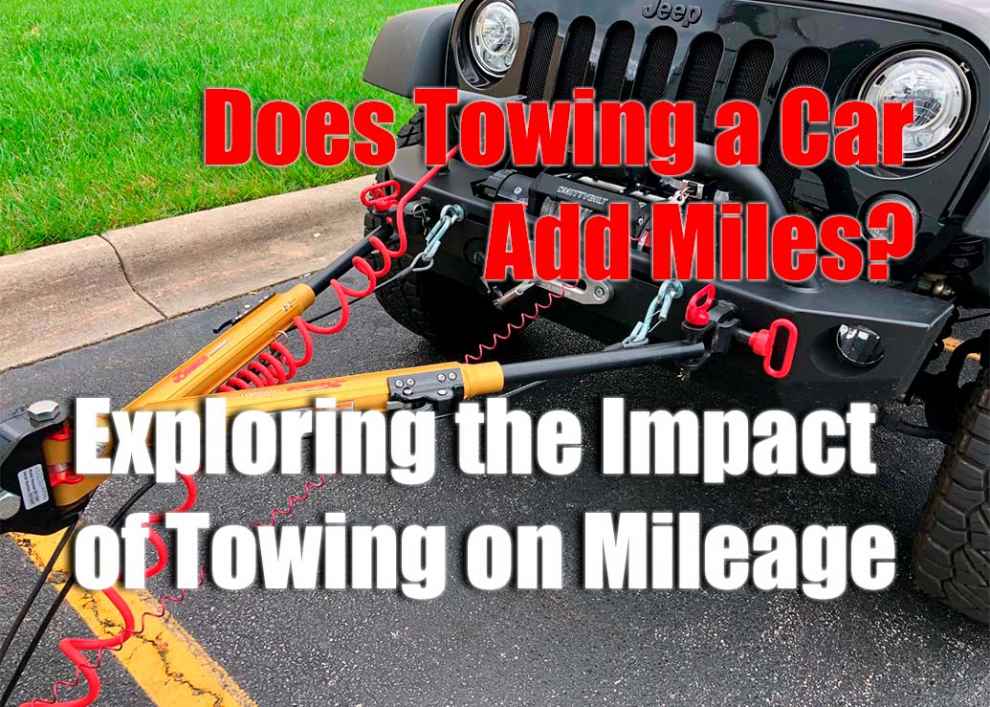If you’ve ever considered towing a car, you may have wondered how it will affect your vehicle’s mileage. It is important to understand the impact that towing can have on your car and how you can minimize this impact. To answer the question “Does towing a car add miles?”, it is necessary to explore all aspects of the towing process and its potential effects on mileage. In this article, we will discuss what is involved in car towing and how it can impact your mileage before providing tips on minimizing the effect of this process on fuel efficiency.
What Is Towing?
Towing a Jeep refers to the process of hauling or pulling a Jeep vehicle using another vehicle, such as a truck or SUV. Jeeps are popular choices for off-road adventures and have rugged capabilities, but there may be situations where they need to be towed. Towing a Jeep can be done for various reasons, including transporting a non-operational or disabled Jeep, relocating it to a different location, or utilizing it as a recreational vehicle behind a motorhome or RV. Depending on the situation and the Jeep model, different towing methods may be used, such as flat towing (dinghy towing), trailer towing, or using a tow dolly. It’s important to follow the manufacturer’s guidelines and use proper towing equipment to ensure the safety of both the Jeep and the towing vehicle during the towing process.
Factors That Can Affect Mileage When Towing a Car
When towing a Jeep, several factors can affect mileage. These include:

Aerodynamics: The shape and design of the Jeep and the towing vehicle can impact mileage. Both vehicles create additional wind resistance while towing, especially at higher speeds. The boxy shape and off-road features of a Jeep may cause increased drag, resulting in reduced fuel efficiency.
Driving Conditions: The driving conditions while towing a Jeep can affect mileage. Uphill climbs, rough terrains, or adverse weather conditions can increase fuel consumption. It takes more power and energy for the towing vehicle to maintain speed and overcome resistance in challenging driving conditions.
Towing Equipment: The type and condition of the towing equipment can also influence mileage. Using improper or outdated towing equipment can cause inefficiencies and increase drag. It’s important to ensure that the towing equipment, such as hitches, trailers, or tow dollies, is in good condition and properly matched to the weight and specifications of the Jeep.
Driving Habits: The driving habits of the person towing the Jeep can impact mileage. Aggressive driving, such as sudden acceleration or excessive speed, can decrease fuel efficiency. Maintaining a steady speed and practicing smooth acceleration and braking can help optimize mileage.
Towing Vehicle: The towing vehicle itself plays a role in mileage. The engine size, transmission type, and overall efficiency of the towing vehicle can affect fuel consumption while towing. It’s crucial to choose a capable towing vehicle that is designed to handle the weight and demands of towing a Jeep.
It’s important to note that mileage reduction is expected when towing due to the increased load and resistance. However, by considering these factors and making appropriate adjustments, such as maintaining steady speeds, using efficient towing equipment, and choosing the right towing vehicle, it is possible to minimize the impact on mileage while ensuring safe and efficient towing of a Jeep.
How to Minimize the Impact of Towing on Mileage
Although towing a Jeep will affect its mileage, several steps can be taken to reduce the impact:
Choose the right towing vehicle: Choosing a towing vehicle with an adequate engine size and transmission type is essential for achieving optimal fuel efficiency. A powerful engine and efficient transmission are needed for safely towing heavy loads.
Prepare the Jeep: Having the Jeep properly prepared before being towed will help reduce drag and optimize performance. Ensure that all accessories, such as bumpers, mirrors, or roof racks are removed or securely attached to minimize wind resistance while traveling.
Maintain steady speed: Maintaining a steady speed while driving can help reduce fuel consumption. Speeding up and then slowing down will not only increase fuel consumption but also puts more strain on the engine of both vehicles and may cause them to overheat.
Check tire pressure: Ensuring proper tire pressure is important for reducing drag while driving. Make sure that all tires on both vehicles have sufficient air pressure before getting on the road and adjust as needed during the journey if possible.
Conclusion
Towing a car adds miles which can reduce its value over time; however, this impact can be minimized by taking certain steps. Using the right towing vehicle, preparing the car for towing, maintaining a steady speed, and checking tire pressure are all important steps for reducing the impact of towing on mileage. With proper care and attention taken before and during the towing process, it is possible to ensure safe and efficient transportation of a car while minimizing the impact on its mileage.

Add Comment